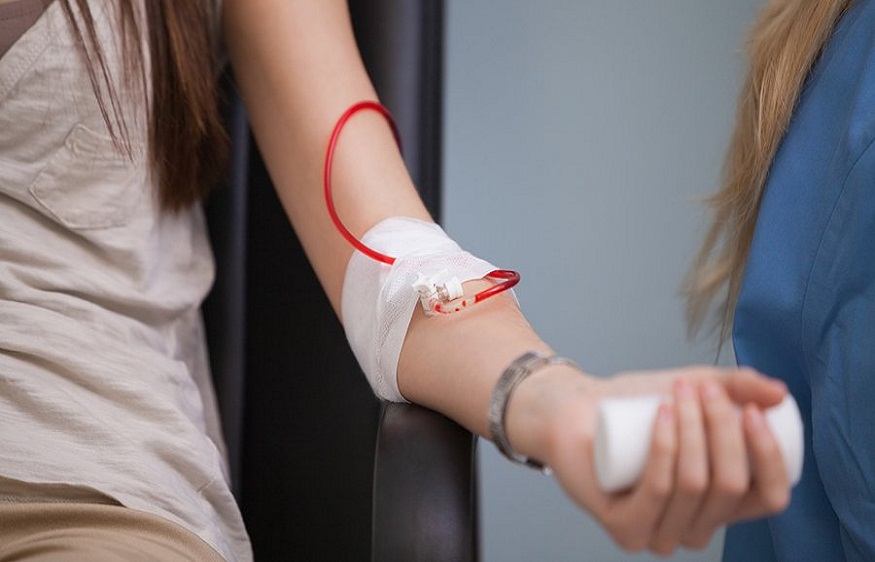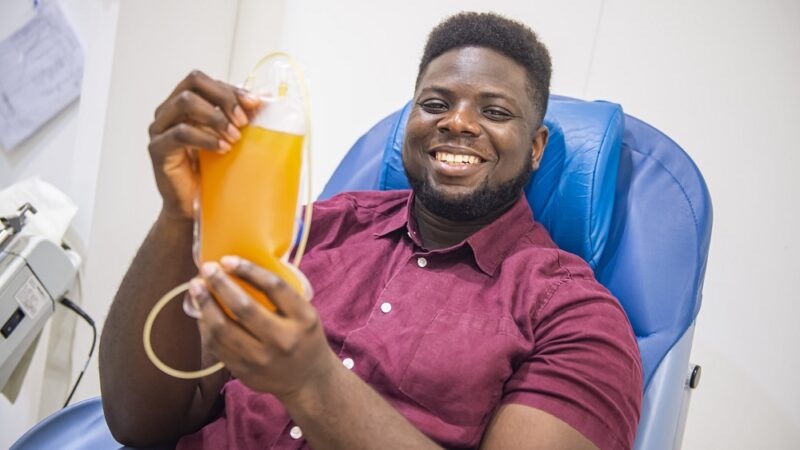More Than A Donation: How Plasma Helps Advance Modern Medicine

If you’ve ever had a friend or family member in need of life-saving treatment for a serious illness, chances are that plasma played a key role. It’s the pale yellow component of blood that contains antibodies, clotting factors, and proteins critical to treating everything from burns and trauma to rare diseases like hemophilia. While most people are familiar with blood donation, fewer understand just how essential plasma is to modern medicine and why more donors are needed.
Plasma donation centers around the country are working to change that, encouraging people to roll up their sleeves and contribute to a resource that can’t be manufactured in a lab. Unlike whole blood donations, plasma is collected using a process called plasmapheresis, where only the plasma is extracted and blood cells are returned to the donor. Because your red blood cells stay in your body, you can donate plasma more frequently typically twice a week making it one of the most accessible and impactful ways to give back.
Why Plasma Is So Important
Many life-saving therapies depend on plasma. Immunoglobulins made from plasma help patients with immune deficiencies lead more normal lives. People with clotting disorders rely on plasma-based therapies to prevent dangerous bleeding episodes. It’s also used in treatments for liver disease, shock, and certain neurological disorders. Plasma helps create a stable supply of biologic therapies, which are becoming increasingly important as medicine becomes more personalized.
But plasma can’t come from anywhere. It has to come from people. And that’s where donation centers, including places offering Glassboro plasma donation, play a vital role in making sure this precious resource is available to patients who need it.
Donating Plasma: A Closer Look
If you’ve never donated plasma, the idea might feel a little intimidating. But in reality, the process is straightforward, safe, and regulated. First-time donors usually go through a health screening, including a physical exam, to ensure they’re eligible. Once approved, the actual donation takes about 45 to 90 minutes. You’ll be comfortably seated during the process, and many donors bring a book, podcast, or simply relax.
Centers that offer Glassboro plasma donation services, like many across the country, are designed to make the experience smooth and welcoming. Staff are trained medical professionals, and equipment is sterilized and disposable to prevent any risk of cross-contamination. You’re also compensated for your time, which is an added benefit for those who want to contribute while offsetting a few daily expenses.
Who Benefits from Plasma?
Plasma donations don’t go to one type of patient. They support a broad range of people. Children with rare genetic disorders, cancer patients recovering from chemotherapy, and adults with autoimmune diseases all depend on plasma-derived medications. Plasma is also critical in emergency care situations, especially for patients with massive blood loss or burns, because it helps restore blood pressure and clotting ability.
In the midst of global health crises like the COVID-19 pandemic, plasma also took center stage. Convalescent plasma plasma collected from recovered patients was explored as a potential treatment to boost immunity in those fighting the virus. Even though its use varied across clinical trials, it highlighted how versatile and essential this blood component truly is.
Growing Demand, Growing Challenges
Despite the importance of plasma, many donation centers struggle to meet demand. This is partly because of strict eligibility guidelines, but also due to a lack of awareness. Many people still don’t realize that plasma donation is different from blood donation or that they can give plasma more frequently.
Compounding the issue is the fact that plasma therapies are often required on an ongoing basis. A single patient with a chronic illness might need hundreds of plasma donations every year. That means every donor matters, and every donation adds up in meaningful ways.
Becoming Part of the Solution
If you’re looking for a meaningful way to help others, plasma donation is a tangible and impactful act. You don’t need a medical degree, a big bank account, or a flexible schedule. You just need a little time and a willingness to give. Centers offering services like Glassboro plasma donation are always eager to welcome new donors and walk them through the process.
Not only are you helping others, but you’re also helping advance science. Plasma-derived therapies are at the forefront of treating rare and complex conditions. By donating, you’re contributing to a pipeline of care that helps researchers and clinicians deliver better outcomes.
Final Thoughts
Plasma donation isn’t just about needles and tubes. It’s about hope. It’s about standing in the gap for someone who needs a lifeline. Whether you’re giving for the first time or the hundredth, your donation could help a parent live longer, a child return to school, or a patient survive a life-threatening emergency.
So, the next time you hear about plasma, think of it not just as a component of blood, but as a bridge between sickness and healing, isolation and connection, fear and recovery. It’s one of the most powerful ways one person can impact another’s life.






